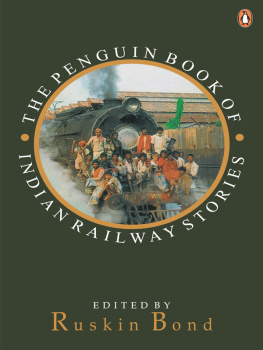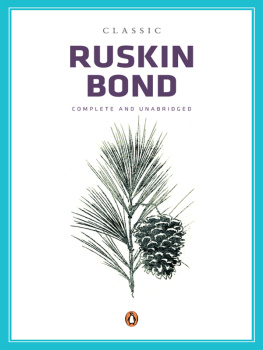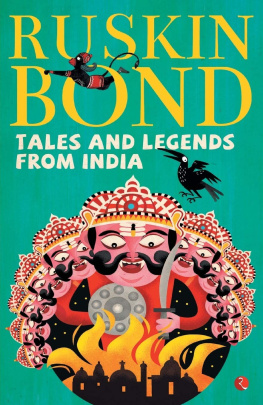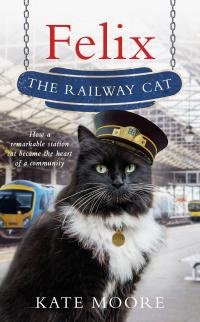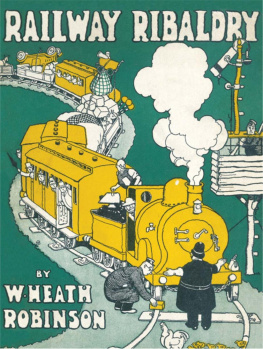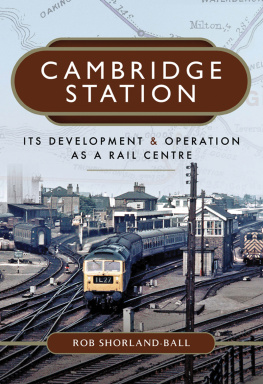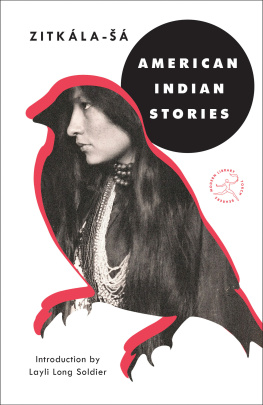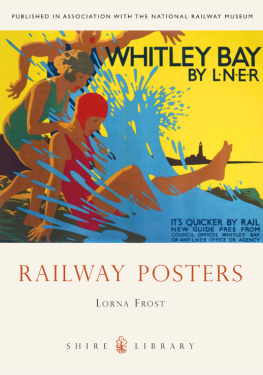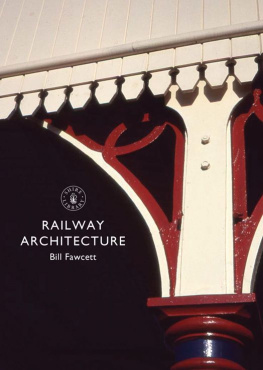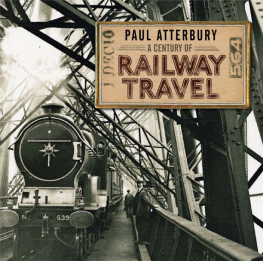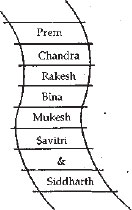Why dont they supply a new flag? said I.
He answered me Sahib, ye-Scotch line to hai.
When I said that I had, Man, he said, but Im glad.
Ram Prasad, was it? Thank you. Ill fine Ram Prasad.
Soot Gets in Your Eyes
M Y ANTHOLOGY OF GHOST STORIES for Penguin India, roundly condemned by several critics, almost immediately went into a second edition. And so I feel cocky enough to indulge myself in compiling an anthology on another favourite subject, the Indian railway.
But what is a nature writer doing, putting together a collection of train stories? Who is this upstart Bond, who has been meandering along like a bullock-cart all these years, and now sets himself up as a railway enthusiast? Just what are his credentials?
Few know that my maternal grandfather, William Clerke, was Assistant Station-master at Karachi in the 1920s, or that my uncle, Fred Clark (they spelt their names differently), was Station Superintendent at Delhi Main during World War II. Occasionally, during school holidays, I would stay with Uncle Fred in his bungalow near the station. He had a wind-up gramophone and a large collection of the records of his favourite band, Spike Jones and his City Slickers. This was the noisiest, most irreverent little orchestra in the world, and it deliberately set out to murder any popular tune that took its fancy. Thus, Sleepy Lagoon became Sloppy Laggon and Romeo and Juliet became Romeow and Julie-cat. Uncle Fred liked it because it was the only band that made enough noise to be heard above the shunting of engines, the whistle of passing trains, and the constant clamour from the railway yards. Some of the instruments used by the band had, in fact, been improvised out of scrap metal picked up in locomotive sheds. As music it was horrific, but I was to remain a Spike Jones fan all my life.
The bungalow had a little garden. But the plants and flowers were usually covered with a fine layer of soot from passing steam engines. So much for the romance of railways! No, railway stations and goods yards never were and never will be the haunt of nature lovers.
A few years ago I travelled by a slow passenger train from Dehradun to Bombay: two days and two nights over the dusty plains of Uttar Pradesh, Rajasthan, Madhya Pradesh, Gujarat and Maharashtra. My nature notebook was not idle, and although the proposed essay proved abortive, I kept the rough notes for a piece that was to be called Wild Life on a Railway Journey:
1) Myna-bird gets into the compartment at Hardwar and, ticketless, gets out again at Roorkee.
2) Fat, obviously well-fed cockroach lurks in washroom basin.
3) I feed platform dogs and freelance crows with Northern Railway thali lunch.
4) Frogs along the west coasta continuous chanting from the fields as the train rushes by. You can hear them quite clearly above the sound of the train.
5) By the time we reach Bombay, six hours late, washbasin cockroaches have multiplied and look as though they are ready to eat the passengers.
* * *
To be honest, I am not a great railway traveller. I am a poor traveller altogether, being prone to any water-borne infection, unfamiliar food, skin eruptions caused by bugs lurking in the upholstery, suffocation from cigarette and engine smoke, and vertigo from riding in escalators. I am also prone to have things stolen from me. The train stopped at Baroda in the early hours, and a lean hand shot through the window, removing my watch from under my pillow, along with my spectacles, which could have been of no use to anyone, my lens-strength being 7 in one eye and +5 in the other. I had to appear in a Bombay court the next day (having been dragged there to face charges for writing an allegedly obscene short story), and I appeared wearing editor Vinod Mehtas glasses, which were only half the strength of mine. I looked so owlish and helpless that the judge must have felt sorry for me, for the case eventually took a turn in my favour.

